“Don’t use ‘sure,’” my regional manager advised me. “Use, ‘I understand.’”
Once upon a time, the regional manager at my former employer paid her monthly visit to our branch. Her goal this time was to try to improve struggling relations between my direct superior and me. Apparently, one of the problems was how I was answering the managers’ directives. “Japanese like, ‘understand.’ Do you understand?”
“Yes” I lied. Now, nearly two years later, I think I finally do understand.
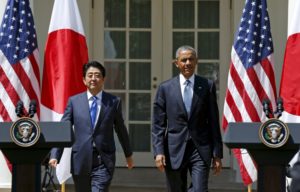
U.S. President Barack Obama and Japanese Prime Minister Shinzo Abe at the White House, April 28, 2015. REUTERS/Kevin Lamarque/File Photo (source)
This week, for the first time, a sitting American President will visit one of the two Japanese cities obliterated by an atomic bomb. President Obama arrives in Japan on Wednesday for a meeting of the G7 nations, and the White House announced Hiroshima will be on the itinerary shortly thereafter. The President plans to pay respects at Hiroshima’s peace memorial and deliver remarks.
The news mentions ‘critics.’ There don’t seem to be any big names coming down on the president – yet. They needn’t hold their breath. President Obama is making the right decision, and he will be welcomed in Hiroshima as he was long awaited: with an incredible grace and patience unique to the Japanese people.
The White House has already made abundantly clear that President Obama will not be issuing any apologies. “He will not revisit the decision to use the atomic bomb” wrote deputy National Security Advisor Ben Rhodes. As he shouldn’t. The decision was made in another world in another time. All that is left is to learn from it – that’s Japanese style.
To most people, the past must be reckoned with as well as the future. The Japanese, however, prioritize the future uniquely highly above the past. ‘Moving on’ is a critical tenet of the culture.
This mentality has upsides and downsides.
After the end of World War II, the Japanese cooperated quite well with their American occupiers. The nation was promptly rebuilt, and Japan quickly became a major US ally when one was needed in the region. American comedians sometimes poke fun at the Japanese people, convinced they are simply masking a titanic grudge with America. But forgiveness is strong in these people. Americans will only find friends here – or at least, incredibly nice, overly busy people.
The drawbacks of Japan’s forward-thinking mentality are strongly felt in Asia. Widespread animosity toward the Japanese may be the only mutual feeling in both Korean nations, as well as broad swaths of East Asia. The common feeling is Japan won’t accept and own up to their past war crimes. The common feeling in return is, it was 70 years ago, so move on. “It was a long time ago” the Japanese often say to me.
But the past isn’t ignored entirely. There are a few Japanese voices who call for the American government to apologize and renounce the monumental decision of President Truman. But they are massively drowned out by a greater call:
Learn from it.
Japan’s two peace memorials, in Hiroshima and Nagasaki, are really moving. Unlike almost every other downtown structure in the country, they take up large, open spaces. Water flows around preserved remains of the devastation. Every little design and detail refers to some tenet of the bombings, be it the desperation of the victims, the hellish environment they experienced, or the lessons we all must learn from it. The memorials prioritize calm reflection and leave the visitor, ironically, with a sense of peace.
The museums are even more powerful – one might even say disturbing. One may leave there with the same opinion with which they entered, but they won’t leave with the same perspective. There are wax figures of children with their skin melting off. Horrifying stories of years of suffering are in every corner. The images are haunting.
Even to this day, cancer rates in Hiroshima and Nagasaki are far higher than the rest of the country, among those who were children during the blast, and even among those born after it.
No nation on earth better understands the cost of war. Since the reforming of Japanese governance after World War II, Japan has dedicated itself to eliminating war itself – obviously a tall task. Japan has partaken in almost no military activity since the end of World War II (though it pays the US for military protection). World leaders are invited annually and then some to its peace museums. The agenda is always the same. Generally speaking, the Japanese don’t want apologies. They want you to know what happened. They want more than the assurance that you’ve heard the facts. They want your understanding.
President Obama believes in the dangers of nuclear weapons, which is why nuclear non-proliferation has been a major priority of his presidency. His visit to Hiroshima will move him further. It will cement his dedication against the worst manifestations of the genius of mankind. It is the right move for the president. It is the right move for a powerful man. Really, it’s the right move for any American.
President Obama, you will understand. And I applaud you for coming.
Unlabeled photos property of Gregory A Nasif
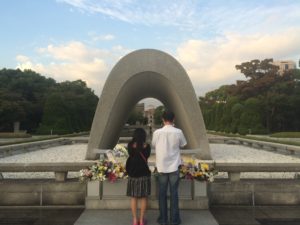
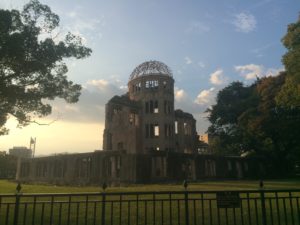
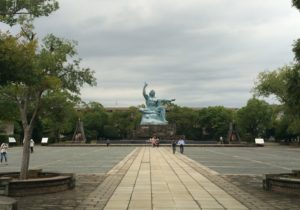
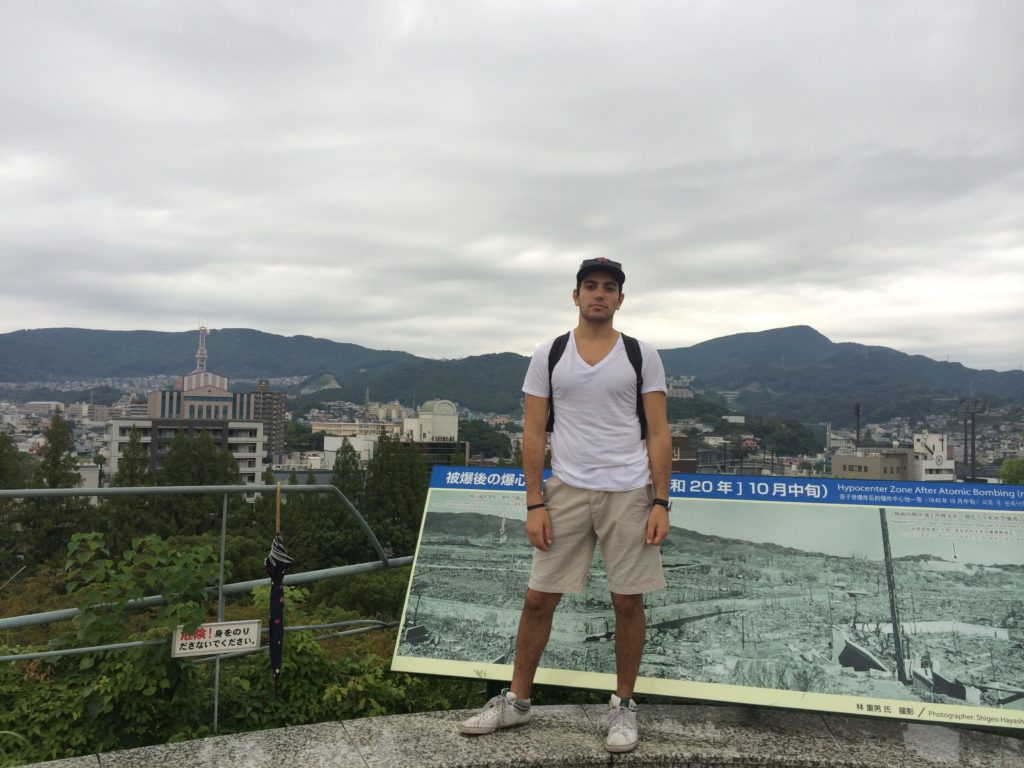
What makes you think we care what a “white” American thinks about Japan and Hiroshima? You think you’re an authority on Japanese culture because you porked a couple Asian girls and drank some sake? You’re pathetic.
Thanks for your #whitesplaining and #mansplaining how the Japanese feel. You visit Japan and all of a sudden you think your opinion matters? Obama should apologize for Hiroshima and you should apologize for this abomination of a story. #Culturalappropriation #whiteprivilege #checkyourprivilege #mushroomstamp #mansplaining